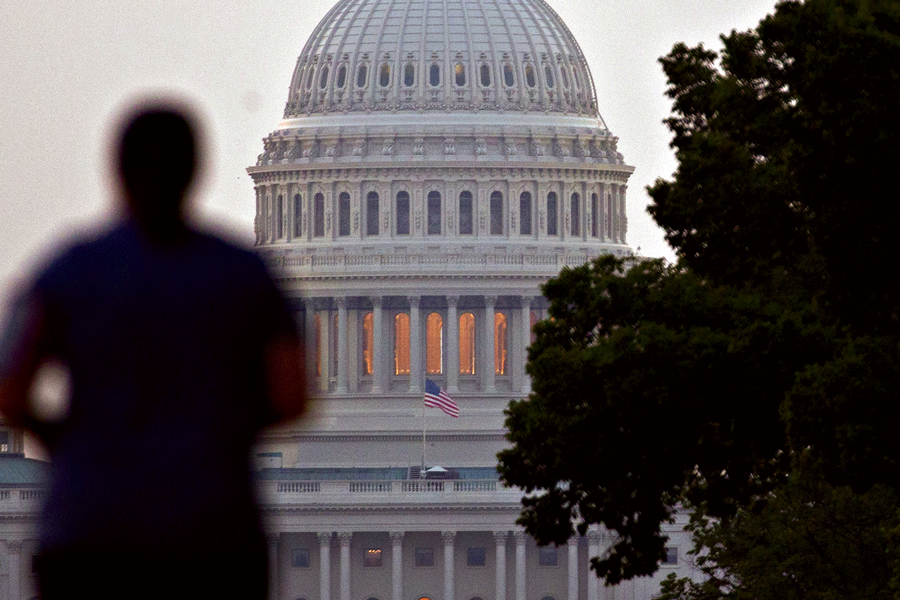

A House committee approved a retirement savings bill Tuesday, continuing a spike in legislative activity on the issue. But partisan tension over the measure poses an obstacle to its becoming part of a larger package later this year.
The House Education and Labor Committee passed the Protecting America's Retirement Security Act on a party-line vote, 29-21. The bill includes provisions to improve fee disclosures in 401(k) plans, require company retirement plans to automatically re-enroll employees periodically, and create a personal financial education portal on the Department of Education's website.
The committee advanced the bill a week after the full House approved a major retirement savings bill, known as SECURE 2.0.
“Now, the Protecting America’s Retirement Security Act provides us an opportunity to build on that progress and continue to help workers, families and employers,” House Education and Labor Committee Chairman Bobby Scott, D-Va., said in a statement.
But unlike SECURE 2.0, which was approved 414-5, the Education and Labor panel’s bill was sent to the House floor with strong Republican opposition.
The committee’s ranking Republican, Rep. Virginia Foxx, R-Va., criticized the retirement bill and a workforce development bill the committee also passed for expanding government’s role in each area.
“These bills, however well-intentioned, do not work for workers, job creators or retirees; not to mention, they hasten the creep of the federal government into the individual decisions of Americans,” Foxx said in a statement.
The Senate could take up the House-passed SECURE 2.0 or advance its own retirement savings bill. A final package later in the year could include SECURE 2.0 as well as elements of other bills.
But many of the provisions in the House Education and Labor bill have only Democratic backing, which reduces their chances of becoming part of a bigger retirement savings measure.
“The proposals that are included would need to have bipartisan support,” said Paul Richman, chief government and political affairs officer at the Insured Retirement Institute.
For instance, the provision in the Education and Labor bill to establish a financial education portal on the Department of Education's website drew backing from both sides of the aisle and from IRI.
But IRI wasn't successful in persuading the House committee to add to its legislation a bill, the Lifetime Income for Employees Act, that would allow retirement plan sponsors to include annuities with a delayed liquidity feature as a qualified default investment alternative.
“We were disappointed to see the Education and Labor Committee did not include the bipartisan bill in this latest legislation that they advanced,” Richman said.
The IRI is pushing the lifetime income bill in the Senate. The chair of the Senate Health Education Labor and Pensions Committee, Patty Murray of Washington, indicated last week that she favors including an annuities provision in a retirement savings bill the panel is writing.
“We take that as a very encouraging sign,” Richman said.
In addition to the pending Senate HELP bill, a couple of retirement savings bills have been introduced in the chamber. Staffers on the Senate Finance Committee have said they’re reviewing more than 100 legislative proposals to determine which ones to present to lawmakers on the panel.
If a final retirement savings bill isn't approved by Congress and signed by President Biden by the end of the year, the legislative process would have to start over in 2023. Bills that don’t become law during a legislative session die.

A Texas-based bank selects Raymond James for a $605 million program, while an OSJ with Osaic lures a storied institution in Ohio from LPL.

The Treasury Secretary's suggestion that Trump Savings Accounts could be used as a "backdoor" drew sharp criticisms from AARP and Democratic lawmakers.

Changes in legislation or additional laws historically have created opportunities for the alternative investment marketplace to expand.

Wealth managers highlight strategies for clients trying to retire before 65 without running out of money.

Shares of the online brokerage jumped as it reported a surge in trading, counting crypto transactions, though analysts remained largely unmoved.
Orion's Tom Wilson on delivering coordinated, high-touch service in a world where returns alone no longer set you apart.
Barely a decade old, registered index-linked annuities have quickly surged in popularity, thanks to their unique blend of protection and growth potential—an appealing option for investors looking to chart a steadier course through today's choppy market waters, says Myles Lambert, Brighthouse Financial.
